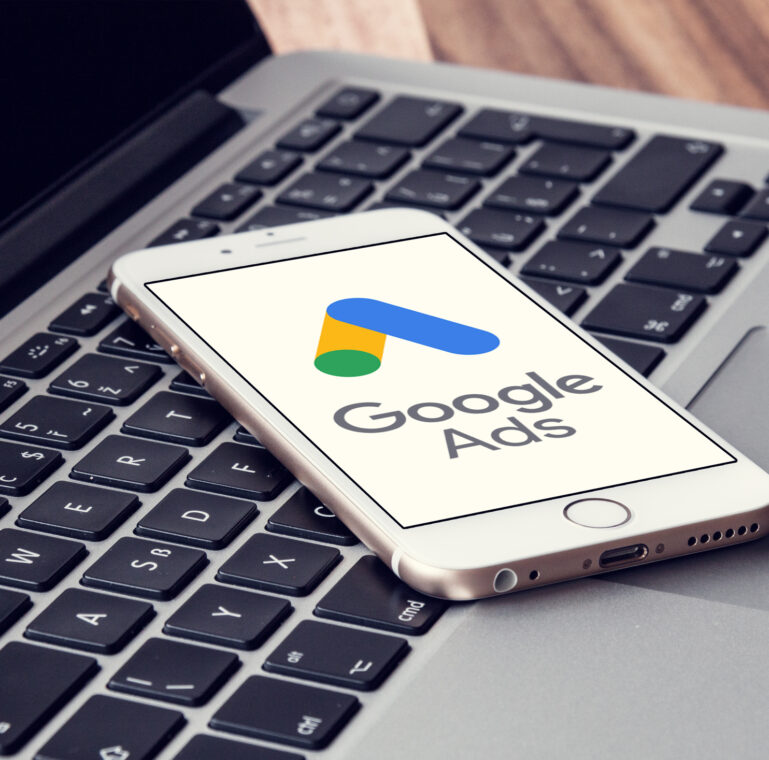Google Ads continues to make significant advancements in ad campaign automation, promising increased efficiency, ongoing optimization and time savings.
While these advancements hold great promise, they don’t always guarantee cost savings or better campaign results. However, it’s essential to know the complexities of Google Ads automation and why combining human expertise and automation is critical to achieving the best results.
Pitfalls of Relying Only on Automation
Undoubtedly, Google’s continued automation efforts for ad campaigns have improved the advertiser experience and made it easier for non-experts to run them. However, leaning too heavily on automation can lead to a loss of control that may result in wasted spend and lackluster campaign performance. So, before embarking on a DIY approach, consider these critical factors:
- Recommendations may not be 100% accurate.
Bid strategies are essential for maximizing the return on your campaign ad spend. While automated bidding can be helpful, Google can’t fully comprehend your bottom-line goals and industry specifics, making its suggestions less than 100% accurate. - Loss of control over bid adjustments.
Only by fully understanding each automated bid strategy and how it impacts your campaign goals can you maximize performance. It’s not that using Google’s automated bidding is bad—it can be conducive to generating leads and sales—it’s just that when you opt for Google’s automated bidding strategies, you give up control over adjusting bids for specific high-value terms related to your product or brand. - Inability to affect quality score.
Since increasing your bid is one way to improve your quality score (which plays a role in rank), the inability to change bids could lead to lost impression share and lower rank. - Lack of business nuance.
Automation cannot comprehend the unique nuances of your business, including your target audience and their intent. While Google has collected a wealth of data, it may not have honed in on the data vital to your success. - Lack of transparency.
The algorithms automation uses on some things, like “closely related match types,” are complex, and marketers can’t fully see inside them to understand how they work. That makes it difficult to optimize campaigns if you take the recommendation of applying all broad-match keywords, for example.
When and How to Optimize
Google Ads often provides recommendations for optimizing your campaigns, including new ads, keywords and bid adjustments. Your optimization score will fluctuate as you adopt these recommendations, but it will go back up as they are addressed.
Unquestioningly accepting these suggestions isn’t a good idea. The recommendations may not always align with your business goals. Some may be irrelevant, leading to the inclusion of costly, unrelated and unproductive campaign keywords. An expert looks at Google’s recommendations with a practiced eye and dismisses suggestions that don’t fit. The optimization score will go back up because the recommendation was addressed—even though it wasn’t applied.
Broad Match Keywords
Another Google suggestion we’ve seen is to switch to 100% broad-match keywords. Broad match triggers ads when a search query has any word in your keyword phrase in any order.
This recommendation is counterintuitive to an experienced campaign manager because broad match triggers ads for more unrelated queries than any other match type. And while the cost per click for broad match tends to be lower, you’ll also likely draw more clicks, many irrelevant, costing more overall. A judicious mix of broad-, phrase- and exact-match types yields the best results.
Learning on Your Dime
Initiating an automated campaign triggers a learning period during which Google’s AI experiments and spends your budget on search queries that an experienced campaign manager would avoid. Google may also recommend multiple changes at once, making it challenging to isolate the ones that truly impact performance. An experienced campaign manager is familiar with your business and your goals and understands which risks are worth taking.
Every Campaign Is Unique
Every campaign is different, and Google Ads automation isn’t a one-size-fits-all solution. Businesses should combine the expertise of experienced individuals with automation to achieve superior results and minimize wasted expenditures. Research indicates that human input, in addition to technology, improves digital campaign performance by up to 15%. Understanding which automation advancements align with your needs and effectively implementing them is crucial for optimizing Google Ads. While Google’s automation may appear user-friendly, the guidance of an expert is indispensable for unlocking the full potential of your campaigns. In the ever-evolving landscape of online advertising, striking the right balance between human expertise and automation is the key to success.











